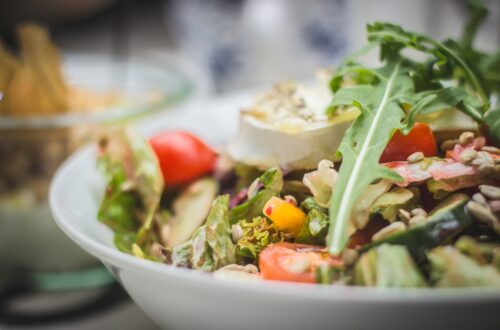
5 Amazing Ways The French Raise Their Kids According To Biblical Principles
Ok, so at the moment of writing I’m reading a book called “French Children Don’t Throw Food” and it’s a book about how the French raise their kids.
The author, Pamela Druckerman, an American journalist and mum, contrasts the stark differences between French and American parenting culture.
Now I’m not writing this blog post in any way to attack American parenting culture – I know little about it. Nor do I intend to put the French up on a pedestal, as I know they are by no means perfect, nor do I agree with all French parenting philosophies, for instance, the high value on crèche and schools over staying at home with children.
Yet, what I believe they get right is ground in Biblical principles, and therefore worthy to be mentioned.
So let’s get down to it.
1. Delaying gratification

This is one of the first things the author mentions in the book. French parents are continually telling their children they need to wait for treats. At the weekend, it is common for French children to bake cakes with their mums, but the kids have to wait until their afternoon snack to try it out.
Delaying gratification is important for all of us, and the principle is clearly taught in scripture in its references to self-control. (2 Peter 1:5,6)
2. Expecting children to eat everything

I find this principle fascinating because I think habits create expectations and expectations create culture. Once parents get into the habit of constantly giving into their children’s desires for snacks, and unhealthy foods, it becomes expected that kids will only eat snacks and be picky with normal wholesome food.
Not in France. Children are expected to have four regular meals a day (breakfast, lunch, afternoon snack and dinner) and to eat the whole meal – yes, even the vegetables.
This relates to the Biblical principle of receiving all things with thanksgiving and not giving way to greed or gluttony (Proverbs 23:1-3).
Indeed, expecting our children to eat healthily – and modelling this ourselves – shows the importance of stewarding our bodies as temples of the Holy Spirit. (1 Corinthians 6:19)
3. Parents are the authority – not children

Another prominent point is that in France, parents are the ones with the authority – not children. This is evident in the fact that parents do not allow their kids to interrupt their adult conversations; evening times are solely for adult pursuits; and children are expected to behave at meal times, both at home and in restaurants. Also, children are taught to tidy up their toys, and be respectful of others.
This ties in well with clear Bible principles that children are to honour, respect and obey their parents (Ephesians 6:1), and parents are to train their children in righteousness and discipline them (Proverbs 13:24).
4. Teaching wise autonomy

Children are taught from a young age that they need to be autonomous and learn to do things on their own. The French believe that kids become confident when they’re able to do things for themselves.
The interesting thing about French parenting is that there’s a balance between structure – the French word for it is cadre – and freedom. The French are strict in their boundaries regarding what they believe to be important – TV limits, sleep, and food – while simultaneously allowing children freedom within those boundaries.
This reminds me of the Bible’s teaching on both wisdom, and the Biblical understanding of parents raising children to be autonomous, so one day they leave father and mother and start families of their own (Proverbs 22:6, Ephesians 5:31)
5. They say “no” and mean it

This goes back to parental authority. French educators talk about the importance of maintaining your word as a parent.
As the French philosopher Jean-Jacques Rousseau said “Give willingly, refuse unwillingly. But let your refusal be irrevocable. Let no entreaties move you; let your ‘no,’ once uttered, be a wall of brass, against which the child may exhaust his strength some five or six times, but in the end he will try no more to overthrow it. Thus, you will make him patient, equable, calm and resigned, even when he does not get all he wants.”
This is something clearly shown in Scripture and which Jesus Himself talked about in Matthew 5:37:
“All you need to say is simply ‘Yes’ or ‘No’; anything beyond this comes from the evil one”
As parents we undermine the authority given to us by God if we’re constantly changing our minds, and giving empty refusals and promises. If we promise something, let us endeavour to fulfil it. If we refuse something for our children’s own good, let us keep to our word, rather than being wayward like the wind.
That’s it!





